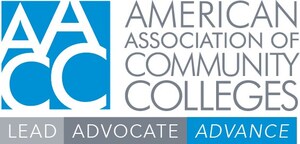
Community Colleges To Advance Innovative STEM Programs Through MentorLinks
AACC and NSF Announce New MentorLinks Colleges
WASHINGTON, July 15, 2014 /PRNewswire-USNewswire/ -- Ten community colleges have been selected as the latest cohort to participate in an initiative that advances STEM (science, technology, engineering and math) technician education programs. Through the MentorLinks: Advancing Technological Education program, the colleges will be paired with experienced community college mentors with extensive experience in planning and implementing advanced technology programs.
The selected colleges will lead innovative projects in biotechnology, biomanufacturing, virtual labs, engineering technology, advanced manufacturing, clean energy, geospatial technologies and cybersecurity. Mentors will work closely with their college teams on activities such as curriculum development or redesign, industry engagement, faculty development, student recruitment and retention, virtualization and internships and experiential learning experiences development for both faculty and students.
In addition, the colleges are awarded $20,000 in seed monies for the two-year grant period, and additional funding to support travel to national meetings and events. MentorLinks is led by the American Association of Community Colleges (AACC) with funding from the National Science Foundation (NSF).
AACC has managed the small, yet transformational MentorLinks project since 2002, where assistance to 34 colleges has resulted in the creation of 103 new courses, 15 new associate degrees and 25 new certificates; the development of several industry partnerships and internship sites; STEM program enrollment increases ranging from 14 percent to 350 percent; and the leveraging of more than $3.5 million in additional grant funding. Many of the previous colleges have applied for and received additional NSF grants as a result of their MentorLinks experience.
The program is also aimed at offering opportunities for smaller and rural colleges that often do not have the resources to apply for grant funding and to build or strengthen their STEM programs. Forty-five percent of colleges receiving a MentorLinks award are from rural areas.
A recent mentee, Jim Roomsburg, dean of business & technical education at South Arkansas Community College commented, "This program has given a small rural community college the opportunity to see what other curricular development in the area of advanced technology is possible. The relationships we have developed with AACC, ATE and our mentor have been invaluable."
The 10 selected mentee colleges for the 2014–2016 MentorLinks initiative are Harrisburg Area Community College (PA), Irvine Valley College (CA), Kapi'olani Community College (HI), Mohave Community College (AZ), Orangeburg-Calhoun Technical College (SC), Patrick Henry Community College (VA), Shoreline Community College (WA), Texas State Technical College Harlingen (TX), Tri-County Community College (SC), and Virginia Western Community College (VA).
About the American Association of Community Colleges
As the voice of the nation's community colleges, the American Association of Community Colleges (AACC), delivers educational and economic opportunity for 13 million diverse students in search of the American Dream. Uniquely dedicated to access and success for all students, AACC's nearly 1,200 member colleges provide an on-ramp to degree attainment, skilled careers and family-supporting wages. Located in Washington, D.C., AACC advocates for these not-for-profit, public-serving institutions to ensure they have the resources and support they need to deliver on the mission of increasing economic mobility for all.
About the National Science Foundation's ATE Program
With an emphasis on two-year colleges, the Advanced Technological Education (ATE) program focuses on the education of technicians for the high-technology fields that drive our nation's economy. The program involves partnerships between academic institutions and industry to promote improvement in the education of science and engineering technicians at the undergraduate and secondary school levels. The ATE program supports curriculum development; professional development of college faculty and secondary school teachers; career pathways to two-year colleges from secondary schools and from two-year colleges to four-year institutions; and other activities.
SOURCE American Association of Community Colleges





Share this article